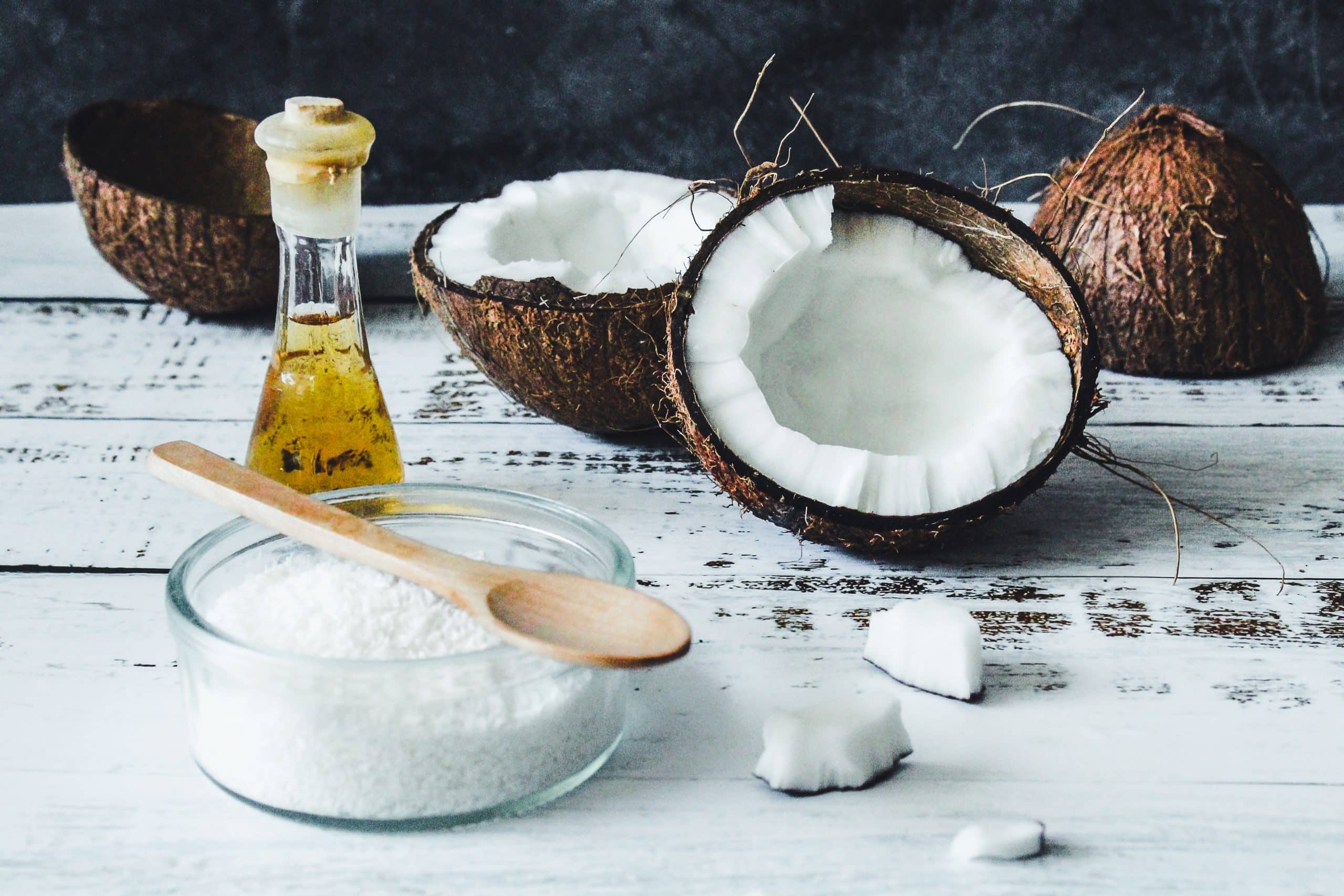Natural is becoming the more sought after method of treatment due to the many hazardous ingredients that are in shelved products. The ingredient label doesn’t tell you much about what is inside a product. There is no clear indication of what ingredients are safe and which ones are hazardous.
What natural remedies are out there that can help with our skincare routine? Here are 6 to get you started!
1. Coconut Oil
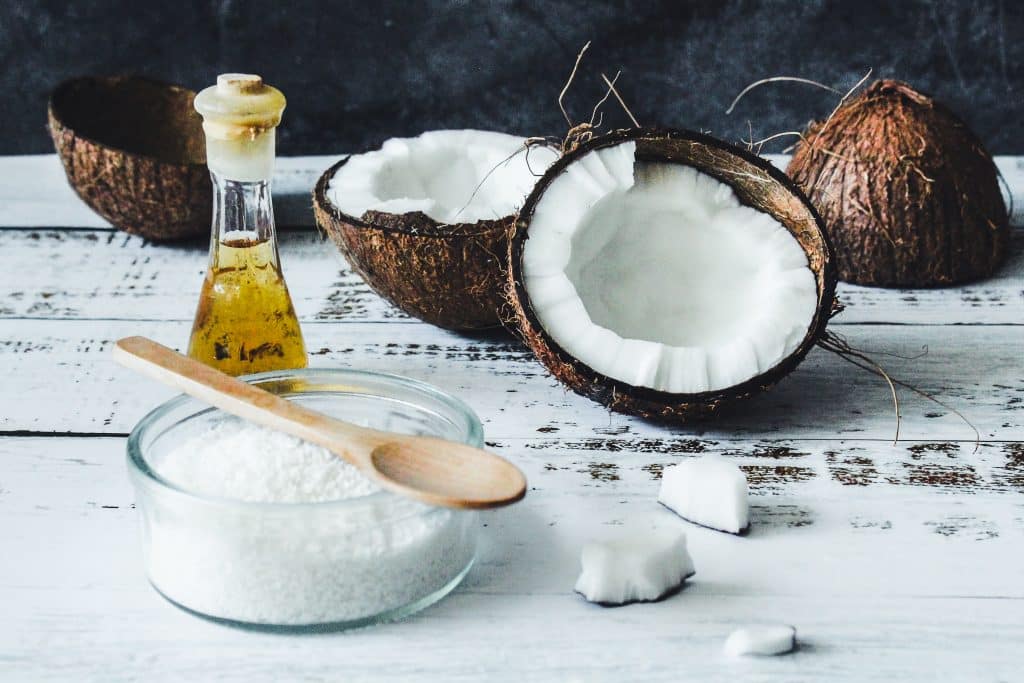
Coconut oil, or copra oil, is an edible oil extracted from the kernel or meat of mature coconuts harvested from the coconut palm (Cocos nucifera). Coconut oil is 99% fat, composed mainly of saturated fats. It has various applications.
A natural remedy that is recommended by the National Eczema Association as it can help prevent infection. It is highly recommended for those with patches of inflamed skin that are prone to cracking and oozing. The antibacterial abilities of coconut oil can reduce staph bacteria on the skin.
Coconut can be used as a natural moisturizer. It is made by extracting from the coconut meat. Choosing the right product is vital, as virgin or cold-pressed coconut oils are the ones without chemicals.
2. Chamomile

Something I used as a child and saw great improvements to my Eczema. Highly known for its antioxidant properties, Chamomile is a medicinally recognized plant that promotes skin health by tightening the skin and improving complexion.
A 2014 study showed that Chamomile lotion can be equally effective as hydrocortisone, making it a natural alternative to the cream.
Chamomile cream/lotion can be bought over-the-counter, so no prescription is needed. Chamomile tea can be used to massaged into the skin as an alternative.
3. Apple Cider Vinegar (ACV)
Apple cider vinegar has many uses, but did you know it can be used as an exfoliant? It can help to remove dead skin and stimulate healthy skin growth. It is well known for its antiseptic and antibiotic properties.
Apple cider vinegar has the vitamins and nutrients needed to regenerate skin cells. When applying, dilute a small amount with water. Apply to your skin and leave it for a few minutes before washing the mixture off with water.
Along with oatmeal, it can be used to exfoliate your skin and soothe Eczema symptoms in baths. Be sure to use the right amount of dilution to prevent irritation. Consult a doctor or dermatologist for more feedback.
4. Turmeric
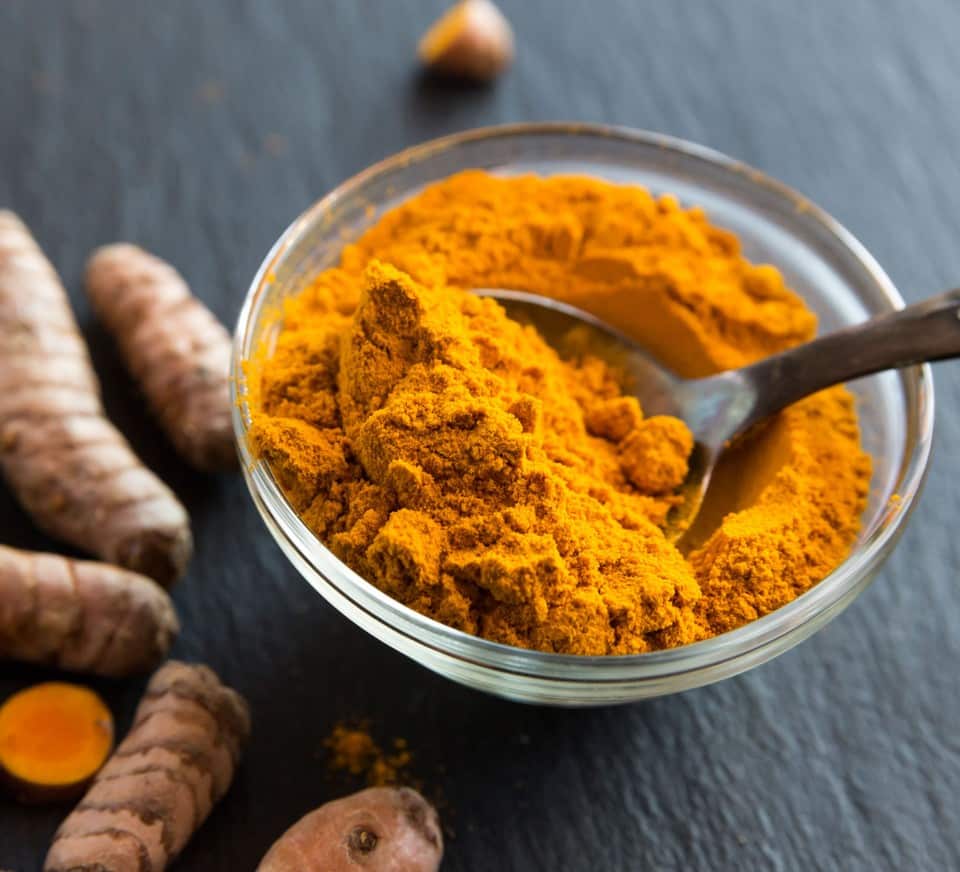
Turmeric is a herb well known for its anti-inflammatory properties that contains curcumin. Curcumin is a rich in antibacterial, antiviral and anti-inflammatory properties compound.
Turmeric cream can help speed up wound healing and reduce scarring for Cesarean wounds according to a 2015 study.
Top tip, you can actually mix honey and turmeric together for a more effective paste to treat Eczema scars. Apply the paste and let it sit on your skin for 10-20 minutes, then rinse off with lukewarm water.
5. Sunflower Oil
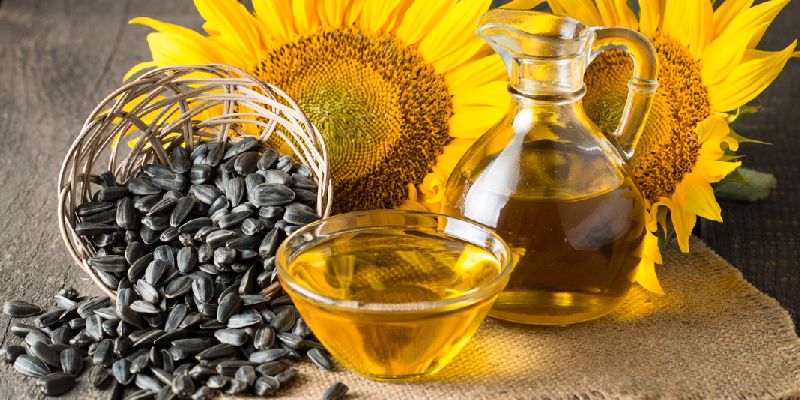
Another oil on the list! This time it is sunflower oil, made by extracting the oils from sunflower seeds. Sunflower oil has proven benefits to the skin that makes it enticing to use.
Sunflower oil is the non-volatile oil pressed from the seeds of sunflower (Helianthus annuus). Sunflower oil is commonly used in food as a frying oil, and in cosmetic formulations as an emollient.
Sunflower oil can hydrate skin, preventing inflammation and itching. It protects the skin’s out layer, which keeps the bacteria out. This is proven by research, making it a must to try out in terms of natural remedies.
6. Colloidal Oatmeal
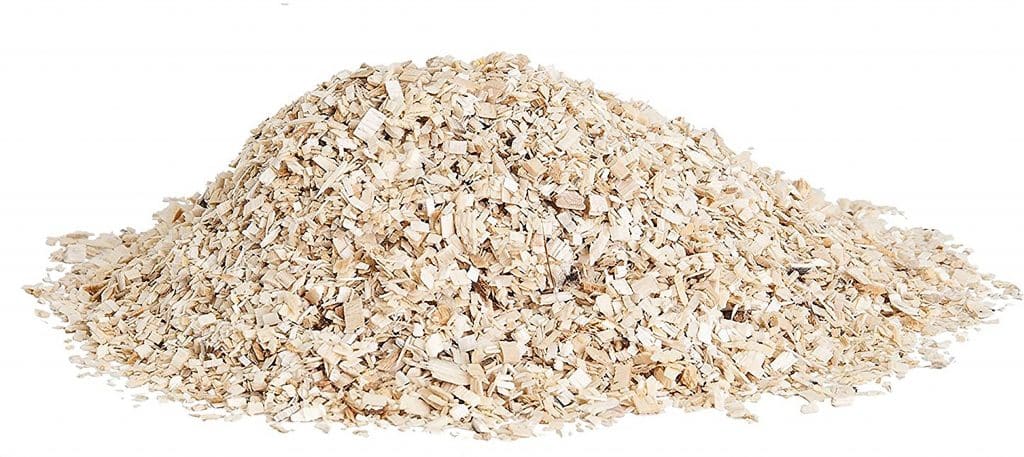
Colloidal Oatmeal is a popular treatment to help calm and soften inflamed skin. Colloidal oatmeal is oatmeal grains that have been ground into an extremely fine powder which is then suspended in a bulking liquid.
The properties of the colloidal oatmeal mixture are often derived from the suspension liquid. It can be used as a moisturizer and helps to soothe itchy, scratchy skin or eczema-esque symptoms. It should not be ingested.
The most popular methods of using colloidal oatmeal in a lukewarm bath and to use it as a paste and apply it to your skin. It should be noted that you must check whether you have an allergic reaction to oats or not first before trying this remedy out.

